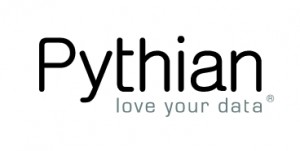 Immigrant and employer success story: Key messages from Heidi Hauver, Vice President of Human Resources, Pythian, a global information-technology services company.
Immigrant and employer success story: Key messages from Heidi Hauver, Vice President of Human Resources, Pythian, a global information-technology services company.
David Sherpa, assistant controller at Pythian, was scheduled to talk about how he established his career as a newcomer, but was unable to attend the conference.
Hauver drew on her experience as an HR professional as well as Sherpa’s experience as a newcomer looking for his first Canadian job opportunity. She recommends the following promising practices for employers looking to hire and integrate newcomers into the workplace:
Remove the Canadian-experience requirement: The most common barrier faced by newcomers remains a lack of Canadian work experience. An unconscious bias still exists among employers who believe it is appropriate to ask if newcomers have Canadian work experience.
The Ontario Human Rights Commission has ruled that a strict requirement for Canadian work experience is considered discriminatory and employers can only ask about it in very limited circumstances.
The best practice is not to ask where candidates got their work experience, but what their work experience is.
Pythian has made efforts to remove unconscious bias in the recruitment process by removing the names of candidates from their résumés and replacing them with identification numbers. This blinded process focuses the hiring manager’s attention on the candidate’s work experience.
Because Pythian receives résumés from all over the world, its HR team also removes any information from applications that identify a candidate’s country of origin, education and training.
Pythian also ensures that in addition to having a minimum of two interviewers on hiring panels, an HR representative is involved in the process to focus the hiring manager’s attention on the candidate’s qualifications.
Incorporate peer mentoring as part of on-boarding: Another common barrier faced by newcomers is a concern about not being Canadian enough to fit into the workplace.
Pythian addresses this barrier by ensuring that, as part of the on-boarding process, every new employee is paired with a long-serving employee. Not only do peer mentors help new recruits navigate the company culture; they can also help bridge cultural differences.
For example, newcomers often find professional networking an uncomfortable experience because in some cultures, it is considered rude to ask strangers for help. Having a peer mentor guide newcomers through the rituals of networking can help bridge the cultural divide.
Formalize best practices into policy: While diversity has been part of Pythian’s corporate culture since the company was founded, it has worked over the years to formalize its practices.
For example, Pythian allows its employees to take their statutory holidays whenever they want. This policy gives employees the flexibility to celebrate the holidays that are meaningful to them – a practice that company employees working in other countries also appreciate.
Remove language barriers: Newcomers often feel apologetic about having English as a second language. Pythian does not test the language proficiency of its employees. The company encourages its employees to speak their mother tongue with each other and with also with clients from around the world. In total, 36 languages are spoken at Pythian.
Use data to demonstrate the value of diversity and inclusion: To ensure the ongoing support of Pythian’s senior leaders, Hauver regularly measures the impact of having a diverse and inclusive workforce on the company’s business objectives.
